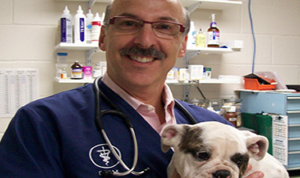Introduction
As I reflect back on thirty two years as a practicing veterinarian I realize just how much our professional lives revolve around crap. Not to be taken in a bad way, I am referring to poop, feces, excrement, bm’s. We see patients for producing too much, too little, too soft, too hard, in the box, out of the box, and everywhere they are or aren’t supposed to go.
Half of our conversations with pet parents includes at least one crappy question. Our offices smell like it, our trash cans are filled with it and our floors cleaned of it. As disgusting as the thought may be, I am often asked why a dog chooses to eat it with the same mouth that then licks us in the face.
Their decision to seek out and consume cat poop has its basis in the fact that cats are very poor digesters. What goes in the front (mainly meat) comes out the back in neatly packaged bite sized morsels. A litter-box is a dog’s all you can eat carnivorous buffet.
Why they eat their own feces is more conjecture and has many theories:
Evolution: when times were lean and meals small and far between, dogs would survive by eating what they could find including the droppings of other animals. Mother dogs consume the feces of their puppies to keep the “house” clean. Puppies learn from this behavior.
As a learned behavior: they see you cleaning up the yard and are trying to please you by helping, or they have seen the reaction that their coprophagia (poop eating in geeky medical terms) gets from you and continue the behavior for attention.
Illness: while not scientifically proven through double blind studies in prestigious universities it may be an indication that your dog is missing something in its diet. Unless you feed a really crappy (and in this context I do mean really bad) diet nutritional deficiencies are hard to produce.
They’re dogs: and being dogs means we can’t always explain why they do something.
Whatever the reason may be, what has already come out should not go back in and the behavior should be discouraged. Regularly clean up after your pet and talk to your veterinarian about breaking this behavior.
Earle M. Rogoff, DVM

